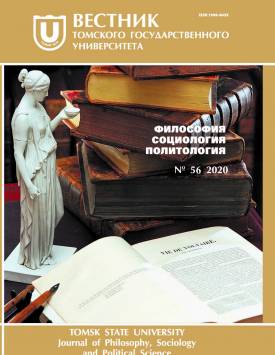Ascriptive Expressions and the Construction of Reality
The use of ascriptive expressions leads us to the theory of constructing reality through the use of language. Since new objects, such as goals in football or crimes, are introduced into ontology by attributing statuses, it is necessary to determine the basis for this mechanism. The performative component of ascriptive expressions, which is a one-time performance of several actions, is defined. Firstly, this is a certain illocutionary act. Secondly, it is directly an ascriptive act, that is, the act of attributing a certain status to a certain position. The basis for the fulfillment of the illocutionary act is the intention of the agent, while the basis for the performance of the ascriptive act is a certain rule. If it is the act of attribution, and not the illocutionary act, that is related to the construction of reality, then it is necessary to identify the fundamental grounds for performing this kind of action. Since the question of following the rule when using ascriptive expressions in the framework of legal statements has already been raised within the framework of the analytical philosophy of law earlier, the analysis begins with the expressions of the legal language. It is demonstrated that a rule of law is not always a regulatory rule. At least some of the legal norms belong to a constitutive rule, that is, a rule that creates the possibility of some new activity. Furthermore, the expressions of everyday language are considered. It is demonstrated that the act of attribution is also carried out on the basis of constitutive rules, from which it is concluded that the construction of an ontology through the use of ascriptive expressions is possible when the individual has a corresponding rule. In a situation when an individual makes a mistake, an object introduced into the ontology can be "recalled", since ascriptive expressions have the property of cancellability.
Keywords
язык, онтология, аскрипция, правила, language, ontology, ascription, description, HartAuthors
| Name | Organization | |
| Andrushkevich Alexandr G. | Tomsk Scientific Center, Siberian Branch of the Russian Academy of Sciences | andryusha.fsf@gmail.com |
References

Ascriptive Expressions and the Construction of Reality | Tomsk State University Journal of Philosophy, Sociology and Political Science. 2020. № 56. DOI: 10.17223/1998863X/56/1
